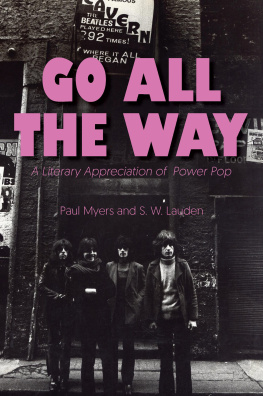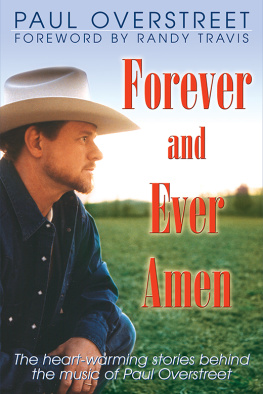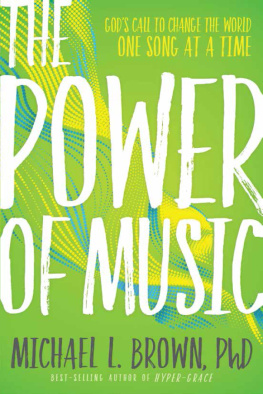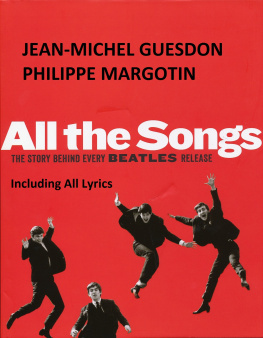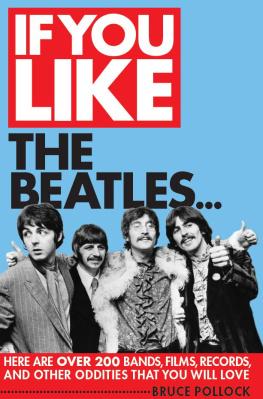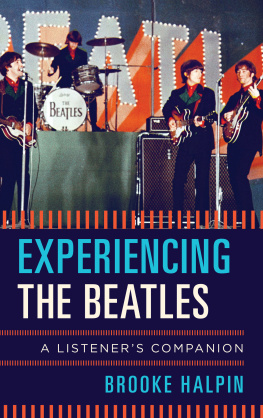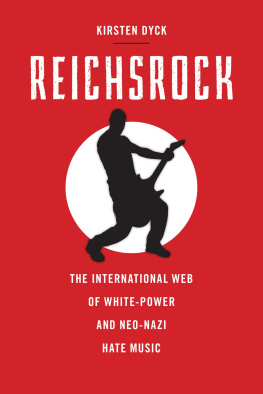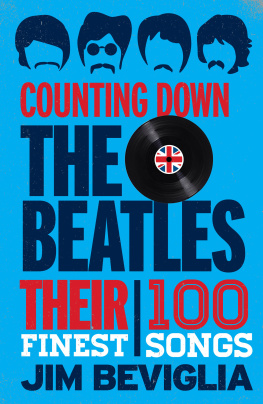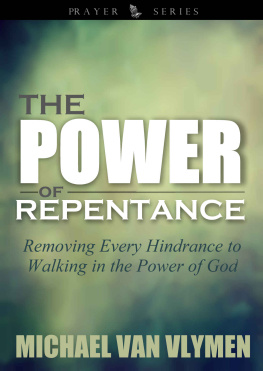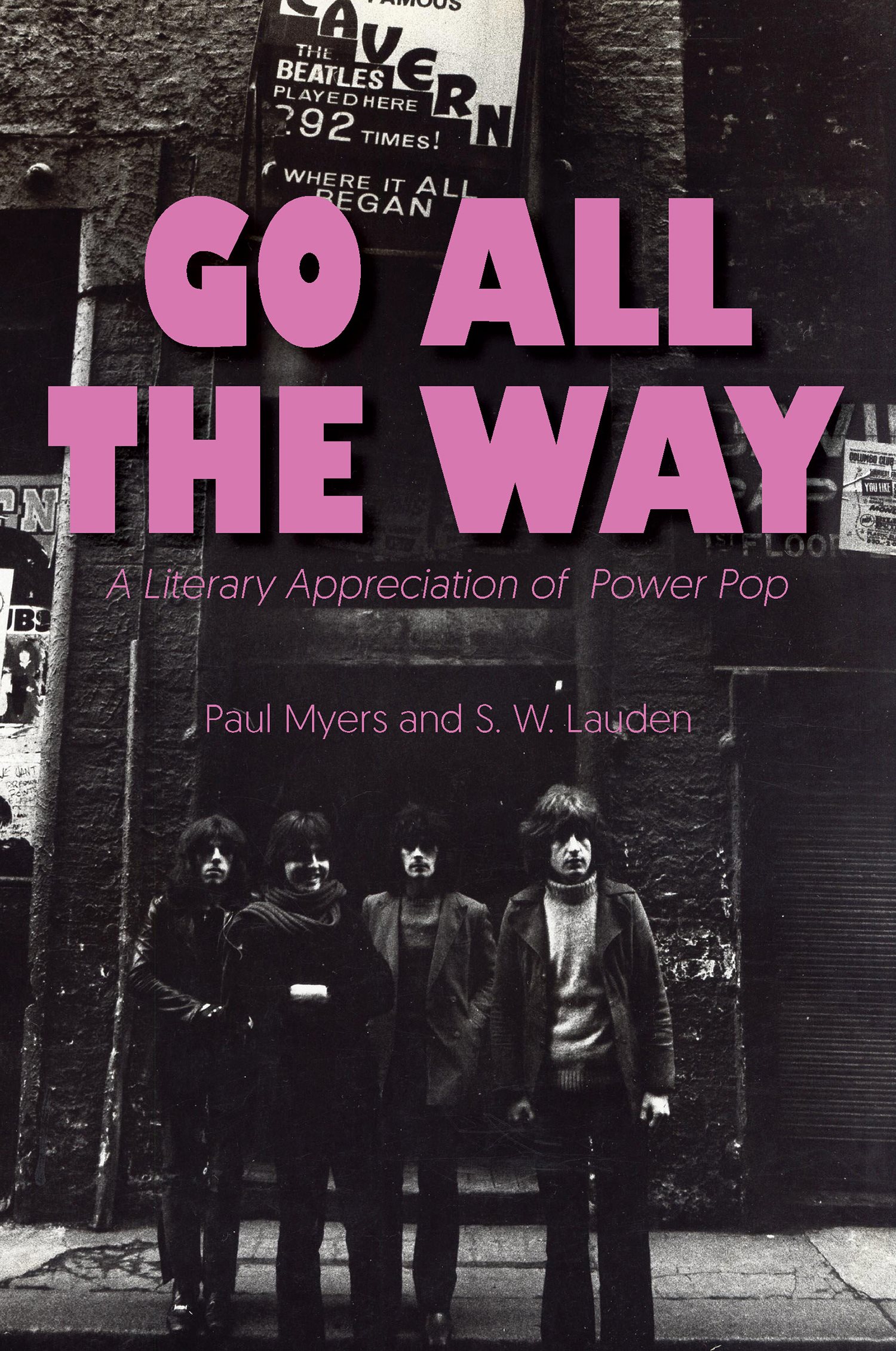This is a Genuine Barnacle Book
Rare Bird Books
453 South Spring Street, Suite 302
Los Angeles, CA 90013
rarebirdbooks.com
Copyright 2019 by Paul Myers and S. W. Lauden
All rights reserved, including the right to reproduce this book or portions thereof in any form whatsoever, including but not limited to
print, audio, and electronic.
For more information, address:
Rare Bird Books Subsidiary Rights Department
453 South Spring Street, Suite 302
Los Angeles, CA 90013
Set in Minion
epub isbn : 9781644281024
Publishers Cataloging-in-Publication Data
Names: Myers, Paul, 1960, editor. | Lauden, S. W., editor.
Title: Go all the Way: A Literary Appreciation for Power Pop /
edited by Paul Myers and S. W. Lauden.
Series: The Mixtape Series
Description: Includes bibliographical references. | First Hardcover Edition |
A Genuine Rare Bird Book | New York, NY; Los Angeles, CA:
Rare Bird Books, 2019.
Identifiers: ISBN 9781945572784
Subjects: LCSH Popular music19611970History and criticism. | Popular music19711980History and criticism. | Popular music19811990History and criticism. | Popular music19912000History and criticism. | Popular music. | Rock music. | BISAC MUSIC / Genres & Styles / Pop Vocal
Classification: LCC ML3470 .G6 2019 | DDC 781.6309/047dc23
Power pop at its purest is the music of hit records that miss
Michael Chabon
Contents
Introduction
By Paul Myers and S. W. Lauden
P aul here. For me, explaining the meaning of power pop is a little like explaining what love is. You know it when you feel it, but damn if its not different for everyone who experiences it. As a songwriter, Ive always had a special place in my heart for what I have defined as power pop, and it has always made me feel young and excited, swept up in the euphoric spell of the eternal now, and its Friday or Saturday night, you just got paid, that girl from school just saw you at the mall, and the limitless potential for adventure is laid out before you like a chiming Rickenbacker guitar. Years ago, Rare Bird asked me to contribute a short story to their literary anthology of prog rock stories, Yes Is The Answer , and I wrote a very personal story about my teenage pals and I going record shopping and working out life in the suburbs. After that book turned out so well, I went to Tyson at Rare Bird with an idea, how about a similar anthology, but this time about power pop? Tyson liked the idea and we soon found out that Pulitzer Prizewinning novelist and screenwriter Michael Chabon, my neighbor in Berkeley, California, was as head over heels in love with power pop as I was. We were off to the races, so I put out a back channel, word of mouth search to find other authors, journalists, and musicians who might have a power pop themed essay in them. That took time, too long if you ask me, and I had to put the whole thing on hold for a couple of years while I researched and wrote One Dumb Guy , my book about the comedy troupe Kids In The Hall . Then, as I was finishing that one, a wonderful thing happened, unbeknownst to me, S. W. Lauden had also approached Tyson with a similar idea, so Tyson put us together to combine our visions for this book. Ill let Steve take it from here
Steve here. After publishing the Greg Salem punk rock PI trilogy with Rare Bird, Tyson and I were looking for my next project. With dueling backgrounds in music and writing, moving into the world of rock journalism and essays made sense. We were batting ideas around when Tyson mentioned a power pop collection that was on the back burner. I knew it was a perfect fit. Ive loved power pop in many of its mutations since I first heard Cheap Trick as a kid, and Paul was the perfect partner in crime. No matter how far my tastes stray into other genres, killer hooks, driving backbeats and strong melodies always suck me back in. Im thrilled to be part of a collection that brings together so many talented writers and passionate music fans in celebration of power pop.
This is not a textbook , in some cases the writing isnt strictly journalism so much as personal essays, and shared experiences, so while this book doesnt claim to be the definitive anything, we have sincerely tried to bring in as many different takes, experiences, and voices on power pop that we could stitch together before our print deadline closed in, and we think we ended up with a fascinating range of stories. Like a picture, each writers take on the subject is worth a thousandactually around two thousandwords, and we think weve taken a pretty cool snapshot here. We close with the immortal words of one of the key architects of the subgenre, the Whos Pete Townshend, who wrote in May of 1967:
Power pop is what we playwhat the Small Faces
used to play, and the kind of pop the Beach Boys played
in the days of Fun, Fun, Fun, which I preferred.
Analog Anthems
By Nancy Rommelmann
A t first the phone is really not yours. Youre ten, you dont call anyone; you know your own and maybe your grandmothers phone number by heart.
Then youre eleven, and after your mother goes to sleep, or maybe when shes just not homeits the mid-seventies and parents are not around much, theyre doing group therapy and having affairsyou call 555-1212, which tells you the time: It is nine-twenty-two andten seconds. It is nine-twenty-two andtwenty seconds, and when that gets boring, you switch over to a womans recorded voice saying what the weather will be in New York City that day and the next. You call her a lot, theres something soothing about it, but its also about the phone in your hand, a lifeline to the outside, though to what outside you are not quite sure.
By twelve you do sort of know, not in your head so much as in your body, the racing in your chest and the heat between your legs have no place to go, then they do. The Shivvers are singing the exact sensations in Teen Line, pouring all of it into the telephone, And its right, cause you called me yesterday, and I had so much to say, and the sun dont have to shine, cause my hearts on the teen line. The song is pure pleading and release and makes you feel as though you are being slammed around and running at the same time.
Then youre thirteen, and boys start saying things to you on the street; they say youre pretty, in English, in Spanish. Three boys youve never seen before ask you and your friend for your phone numbers. No ones ever done this, and it seems a reasonable exchange. You hand your number to Junior and Tiger and Roach, and like that theyre calling, the phone rings and rings, and your mother asks, Who are these boys? You barely speak into the phone. Youre giddy just to hold it, to hear the boys voices, and then, only Juniors voice, his soft Puerto Rican accent in your ear and, days later, his mouth on yours. Youve read, probably in your mothers copy of The Joy of Sex , that touching the back of a mans neck makes himsomething? Happy? Anyway, you do it, and Junior, who is fifteen, springs up from the bed. Dont do that, he says, and you think, that was immediate, but it is also the last time you and Junior kiss; he tells you he doesnt trust himself around you, that you are too young.
The phone, which is in the kitchen, rings later in the week. Your mother does not allow phone calls during dinner, and anyway shes had enough of these boys calling, but its not a boy, its a girl, and shes screaming something that turns out to be YAW DAWTAHS A HAW! This girl, it seems, has grown up with the boys who have been calling you. She calls again the next night, which is so disturbing to your mother that she gets your father to come over and deal with it, and while its a little terrifying to hear the girls voice reverberating through the phone, screaming that you are a whore, you also think, all you did was touch one boys neck, that youre pretty far from, For a good time, call You have never been in a mans restroom and have no idea if things like this are written on the wall. You know about it only from the 867-5309/Jenny song, which youre not sure you like, its catchy, but it also feels tricky, like a song boys might guffaw at, boys you wouldnt want to hang around with anymore.

